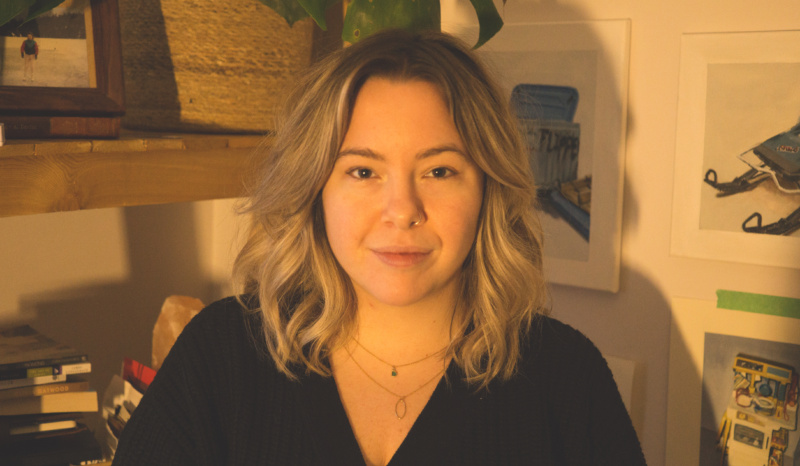2025 Artist in Residence
September 6 - October 1

Sabrina Pinksen is a writer and painter from Wild Cove, White Bay. Her written and visual work operates to challenge the erasure of Newfoundland’s outport communities. In 2024, her first novel was awarded the Percy Janes First Novel Award and the NLCU Fresh Fish Award. Her work has appeared in Riddle Fence, Horse Shoe, and Newfoundland Quarterly. A 2023 grantee of the Elizabeth Greenshields Foundation, Sabrina’s visual work has been supported by ArtsNL and collected by the City of St. John’s and The Rooms Provincial Art Bank. She holds an MFA in Creative Writing from the University of Guelph.
My artwork explores contemporary art practices rooted in personal, rural experiences, informed by my home in the north-central coast of Newfoundland & Labrador. I’m interested in how people are in community with one another while reckoning with the disappearance of our communities and livelihoods. I rely on painting’s capacity to relay a human experience through colour, atmosphere, and movement to render conflicting emotions of joy and loss.
My work is tied to the complex feelings of growing up in a forgotten community that has always felt on the precipice of extinction. At the core of my practice is a reckoning with the possibility of my community being resettled and what that would mean for the people I love, my identity, and my home.
I consider the ways in which a painting is able to linger within a temporal moment, to deepen it with colour, texture, brush work, and movement, and to allow a viewer to remain in that instance. I rely heavily on brush work and colour to create the texture of a specific time and place and push it beyond what a photograph can portray. In this way, a painting functions as a meeting ground for the expansiveness of human experience: joy and grief meets the confines of labour and the limits of socioeconomic situations. My work is an earnest attempt to challenge the erasure of outport Newfoundland and to work toward a future where our lives can thrive in the communities we were always told we had to leave.